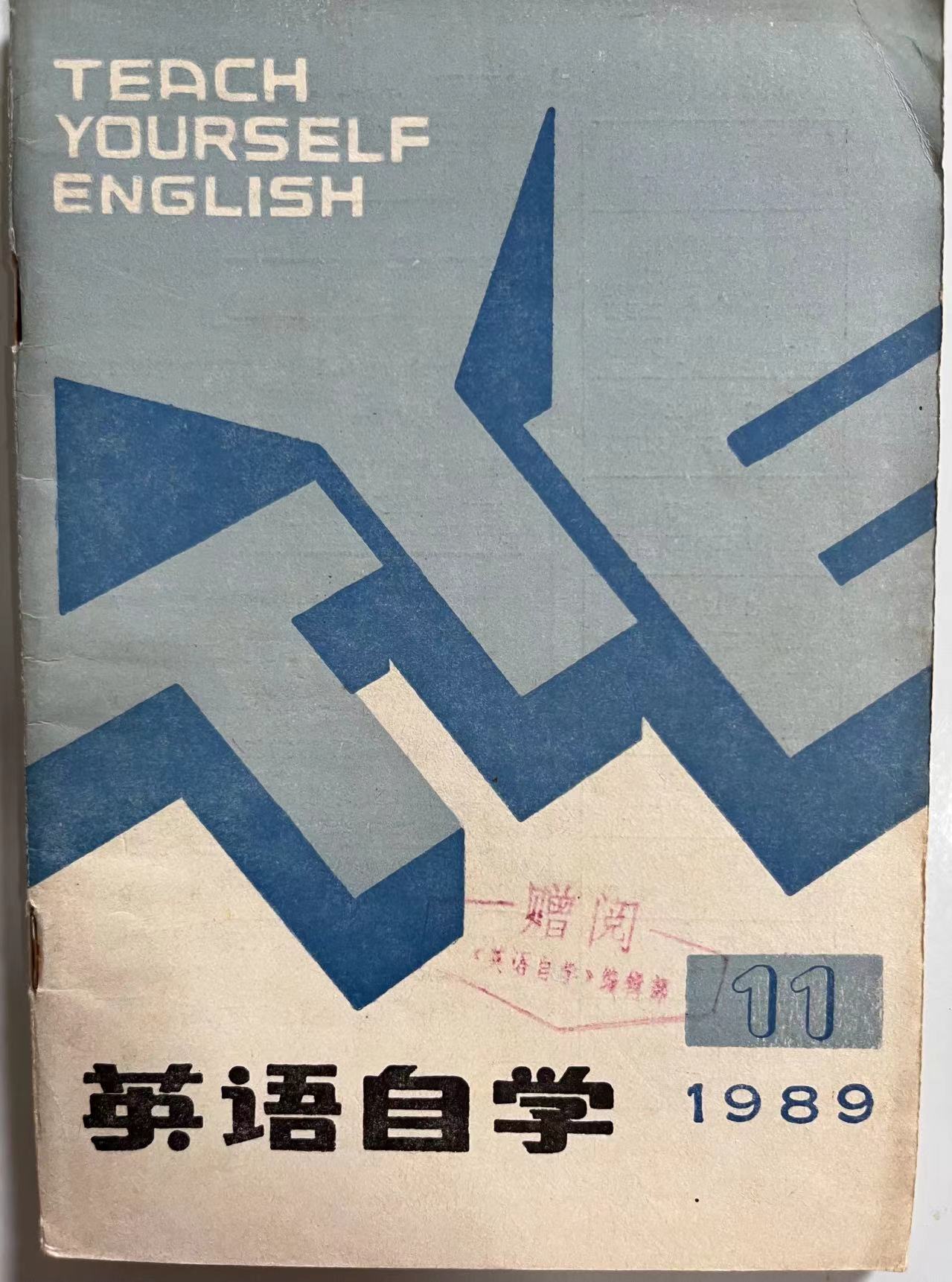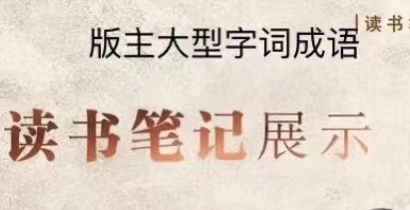Since I left NJU (Nanjing University) in July of 1970, I have been teaching myself English. It was 18 years when I was given the title of high-rank teacher in 1988 and the payroll was raised one level up, which comforted me greatly and irritated one or two counterparts who were of my age and graduated from the English Department as well. In order to show the distinguished feature of my teaching myself English, I gave up a chance to engage in advanced studies in Jiangsu Education College in 1988. Showing the distinguished feature was one of my motivations. The main motive was that I was a responsible husband and father. My two sons were in Senior and Junior Grade Two, facing the college and high school entrance examination respectively. I didn’t want to let Meilan Zhang be busy teaching and caring about the two kids alone, which might make our family in disorder. I preferred to calm my mind and summarize the experience of teaching myself English for 18 years, which would be useful for my further study and research. Shanghai Foreign Language Study University(SFLSU)published a new magazine called “Teach Yourself English”, which attracted my interest in writing an article about how I had taught myself English for 18 years. The title of the article was “Teaching Myself English Makes Me Become a High-Rank Teacher of the Middle School”. Vol. 9 of 1989 of the magazine issued my article and the following is the full text.
《Teaching Yourself English》 Vol. 9, 1989 (Total 42)
Teaching Myself English Makes Me Become a High-Rank Teacher of the Middle School
Zhengji Middle School, Tongshan, Jiangsu Song Defu
I was a graduate of German language and literature specialty, Nanjing University, in 1969. I entered the university in 1964 and studied German for two years before the Cultural Revolution broke out when we had to stop studying. In 1970, I left Nanjing for Tongshan County of Jiangsu Province to receive re-education and German became of no use. In the face of the reality, I began to teach myself English in the same year. I used to study Russian when I was a senior middle school student so English was a completely strange language. Beginning from letters and phonetics, I depended entirely on teaching myself without a day of taking an advanced study from teachers in a school, forging ahead step by step. Not long ago, I was awarded the title of the high-rank teacher of the middle school by the EAG of Jiangsu province, after they examined and appraised several theses of mine and my ability to teach, which was admired by teachers of my age whose major was English and those who taught what they studied in colleges and universities. Because my English has come from teaching myself, I cherish a deep affection for the magazine “Teaching Yourself English”. Since the day she came into being, I have been her loyal reader and now I own double statuses, both the reader and writer. For a long time, I have been having a desire to make use of a corner of hers to talk about the process of my road to those young people who are teaching themselves English, which, I hope, would be liked by all of you.
In August of 1970, I was sent to the countryside to receive re-education, so called at that time and got to know that when the reeducation was over, we would teach in the middle school located in the village or town of the county. In the middle school German was not taught, my wife and I decided to teach ourselves English. We learned from those who majored English in the college or university or used to study English in the middle school. Thanks to the Cultural Revolution, the foreign language was not popular, and there were only a few books in English on politics in the bookstore, let alone the radio, record, recorder, and TV. With the help of the students living and laboring with us, we found some textbooks before the Cultural Revolution and began to study in the early morning before going to the field and in the evening before going to bed.
As soon as I came to work in the middle school in 1972, I began teaching English. After Mazhenfu Incident(See: Section Fourteen Seriously Thinking of My Career Leads to an Answer Constantly Taking in Nourishment to Become a Big Tree), English course in the middle school existed in name only. Students were not willing to study English and I had to change my trade and taught other subjects, but I continued to persist in teaching myself English. After the smash of the gang of four,the English course in the middle school restored its original position and I began to teach English again. On account of our good results of teaching, my wife and I were transferred to the county middle school and began to teach graduate grade. I taught students as well as myself, and finished studying a lot of textbooks of colleges and universities, including BIFL (Beijing Institute of Foreign Language), BJU (Beijing University), SJTU(Shanghai Jiaotong University), Professor Guozhang Xu’s. The famous grammarian Randolph Quirk’s “A Grammar of Contemporary English (GCE)” had 1120 pages,which was very difficult for me to read. The new concepts and terms in it were hard to understand and could not be found in the dictionary and other references, which was strong enough to force me to give up reading it. I persevered in reading it, with several lines a day, not able to grasp its meaning. A common saying says, “If you cannot understand what the book says, the taste is just like that of gnawing at a bark.” I tasted the taste of the bark and it stayed on my tongue for a very long time, not disappearing. Gratified, as time went on I gradually understood some contents, and smelled “the fragrantness of the plum blossom, which had experienced the cold winter”. I felt that the speed of reading the GCE was too slow. If I read half a page a day, it would take me 7 years to finish reading it. A whole page a day and I would spend half and three years. I calmed and forced myself to be patient, believing it was the time when my will would stand a severe test. A lot of psychologists hold the view that non-intellectual factors will play a key role and the will is the important element of the non-intellectual factors. The levels of talents are the arrangement of the will. I didn’t think how many years I would finish reading it and believed that I would come to the end one day. If you have no target, one day passes after another, and several years may fly before you know and you’ll still stay in the original place, making no sense. On the contrary, have a plan in your mind and you’ll feel the pressure, become vigorous and advance steadily. I endured the loneliness, one word after another, one sentence after another and one line after another. Finally, after a little more than six years, I came to the last page of the book.
Reading the classic work is not reading a novel and only having some impression is of no benefit. When talking about reading, the famous Confucius scholar of Song Dynasty, Xi Zhu, said “peel the skin and you can see the meat; pick out the meat and you can see the bone; break up the bone and you can see the marrow.” I wrote what Xi Zhu said on the title page, indicating my determination to see the marrow of the work. I began to read the GCE for a second time. The speed of the second time was two times faster than that of the first time, taking me three and a half years. Further I combined what I read in the GCE with my teaching in the class. As a result, I had a new deep understanding of some language points, with the motive to write something appearing in my mind. For a third time I read some relative sections of relative chapters, with questions or puzzles in mind and then wrote articles. Questions by students, discussions among teachers, and articles on the paper or magazine stimulated me to write. I began to contribute in May of 1985 and up to this article, 23 papers and magazines of the whole nation had issued my theses, coaching articles and all kinds of exercise, the number of which amounted to 148. When I met a problem, I would research it, sparing no effort until I wrote a satisfying article. Writing promoted my teaching and my lesson preparations were speedy and precise, so that my lecture in class became short but contained rich knowledge, shooting the arrow at the target and ensuring the teaching quality to improve steadily.
Recalling my road of teaching myself English, I believed that the following four points should be kept in mind in order to ensure the success of teaching yourself.
1) Perseverance is the key. Old scholar, Mr. Shuxiang Lǚ once said, “The result of learning English, all or nothing” If you give up when half done, you’ll receive nothing. Your resolve is unshaken, and you’ll be sure to gain achievements.
2) Do not fear hardship. You cannot grasp a foreign language without strong will. During the 18 years of teaching myself, I got up early every day without any exception, whether it was Sunday or winter or summer vacations. I’ve got used to it and do not feel any suffering.
3) The main task is to read a lot. Learning a foreign language requires four abilities, and the key one is reading. Read more and you’ll be able to listen, speak and write. Listening and speaking is not as convenient for self teaching as reading, which can give you a lot of treasure and enjoyment. Professor Guozhang Xu told a story that BBC played “Anna Karenina” by the Russian writer Leo Tolstoy, he could understand it, while an English native speaker cannot, because Mr. Xu had read the story of Anna Karenina. I’ve read Quirk for years, so I can speak some difficult terms in it freely.
4) You should determine to read some classical works in English version. Learning a foreign language requires patience, gradually step by step, but be careful not to stay at the same level. When you reach a level, you should make your mind to read something difficult. This is because only when you can read difficult materials, you can speed and enlarge your reading. After reading Quirk, I can read smaller books at much higher speed, having the feeling “Once on the top of the Mount Tai, all other mountains look small and low.”

Journal of Teaching yourself English of Shanghai University of Foreign Language
Note
“The gang of four” during the Cultural Revolution: headed by Qing Jiang, wife of Mao Zedong. The other three members were all from Shanghai, namely, Hongwen Wang, Chunqiao Zhang and Wenyuan Yao.
Jan. 26, 2010 in Xuzhou
Proofreading on Feb. 17, 2012 in Chicago
Uploading on Aug. 5, 2023









